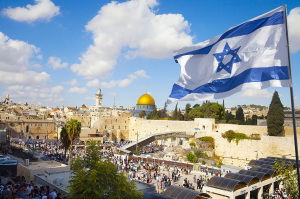Should David be the standard bearer for a fallen leader's restoration?

As various ministry leaders have made headlines recently, being found guilty of immoral and unethical behavior, there seems to be a pattern from their followers. They often cite David’s sin with Bathsheba and subsequent “restoration” as a reason to forgive and forget. Looking to their favorite leader as a beacon of inspiration and truth, followers hope to quickly overlook their failings to get them ministering again and feeding the flocks. As long as they repent of their ways and declare to do better, we should move on and not look back.
Unfortunately, this line of thinking is not just among followers, but leaders themselves. TD Jakes has been in the news again with allegations of having sex with other men at Sean ‘Puffy’ Combs parties. When Jakes spoke with his congregation immediately after the story broke, what was his response? “The worst that could happen, if everything was true, all I got to do is repent sincerely, from my heart.”
Are you serious!? This is all that’s required if a prominent minister violates God’s laws? We need to seriously reconsider using David as a standard bearer for fallen leaders. Certainly, David should be commended for his immediate repentance upon hearing the prophet’s rebuke and exposure of his sin (2 Samuel 12:13). Without hesitation, David did not defend or justify his actions, but acknowledged them and pleaded to God for mercy. He wrote Psalm 51 amid his repentance and demonstrated great remorse for his gross sins before the Lord. He also realized that all of his pomp and circumstance did nothing to appease God. It was only a broken and contrite heart that God would accept. His cries to the Lord did reveal the purity of his heart to please His God, first and foremost.
"For I know my transgressions, and my sin is ever before me. Against you, you only, have I sinned and done what is evil in your sight" (Psalms 51:3-4 ESV).
But if this is the reason for citing David’s example, then this is what we should see evidenced in any pure-hearted leader who has been found in sin. An immediate recognition of their sin before God and a total surrender to God’s discipline and oversight. If they truly have “David’s heart” then it would be seen in their words and actions that display full responsibility for their sins, the negative impact on those they hurt, as well as full recognition of any negative consequences that will likely follow. Not only will they display open and honest grieving for their actions, but also exhibit grieving for those they abused in the process.
But, even if a fallen leader displays this level of sincere and authentic repentance, any parallel to David should also take into consideration the price he paid for his sins. Though he may have continued in his role as king, it was his entire family and lineage that paid the price for his selfish actions. Not only did his son die, but rebellion would rise up in his household and defilement would be unleashed upon his progeny — for years. Though he could still enjoy the close fellowship of God’s Spirit in his life, his intentional and premeditated sins would continue reaping destruction on those he loved. He went to his grave understanding, not only the mercy of God, but the gravity of God.
The fact is, the greater one’s influence and spiritual authority, the greater the consequences will be when disobeying God’s laws. God doesn’t give free passes to those He favors. And just because a leader has a pure heart and sincere intentions, doesn’t make them exempt from discipline — or harsh consequences.
Scripture declares that David was “a man after God’s own heart.” I would suggest this could actually be interpreted as, “a man after God’s own choosing.” This was actually the known phrase among nobility in other nations at that time. The inscription on Nebuchadnezzar’s son’s grave was, “…his eldest son, the chosen of his heart…” A similar reference in the Babylonian Chronicle citing Nebuchadnezzar’s choice of king Zedekiah was, “he appointed therein a king of his own heart.” This suggests that this phrase places the priority on God’s choice — not David’s heart.
So, if David was God’s choice, why did He choose him? Certainly because of the purity of his heart. But David was also passionate. It was evident in his writings and music, as well as his leadership style. He was fiery, impassioned, and full of zeal for the Lord. When totally submitted to the Lord, that made for a mighty king, valiant warrior, and effective ruler for a rebellious nation. God may have chosen David precisely because of that zeal and passion. But it was that same passion that became unbridled, self-absorbed, and eventually destructive. Thus, David’s strength was his eventual downfall. This may be the two-sided coin of a fallen leader. It may be those very leaders who carry the greatest zeal, passion, and determination in their call, that are also the most vulnerable to their own desires. If they allow their victories, achievements, and the growing admiration of their followers to get to their heads, they will become blind to their own weaknesses and find themselves falling from a great height.
Yes, God gives us incredibly gifted and charismatic leaders. They are chosen precisely because of their God-given strengths and abilities. He knows the risks He is taking in giving such power to those who carry such potential. And yet, He calls each of us to recognize that our strengths, as well as weaknesses, must all come under the cross in total submission if we are to truly please His heart.
On this side of the cross, I would hope we do not look to David as some standard bearer for leadership restoration, but as a sober reminder of the severity of a holy God.
Wanda Alger has been in ministry for over 35 years as a worship leader, teacher, author, deliverance counselor, and speaker. She has produced numerous video and audio teaching series and six books, including her latest, WORDS TO PRAY BY. She also hosts a YouTube and Rumble channel, and is active on social media. Find all her resources and writings at www.wandaalger.me She is married to Bobby Alger, Lead Pastor of Crossroads Community Church in Winchester, Virginia which they founded together in 1998.




























